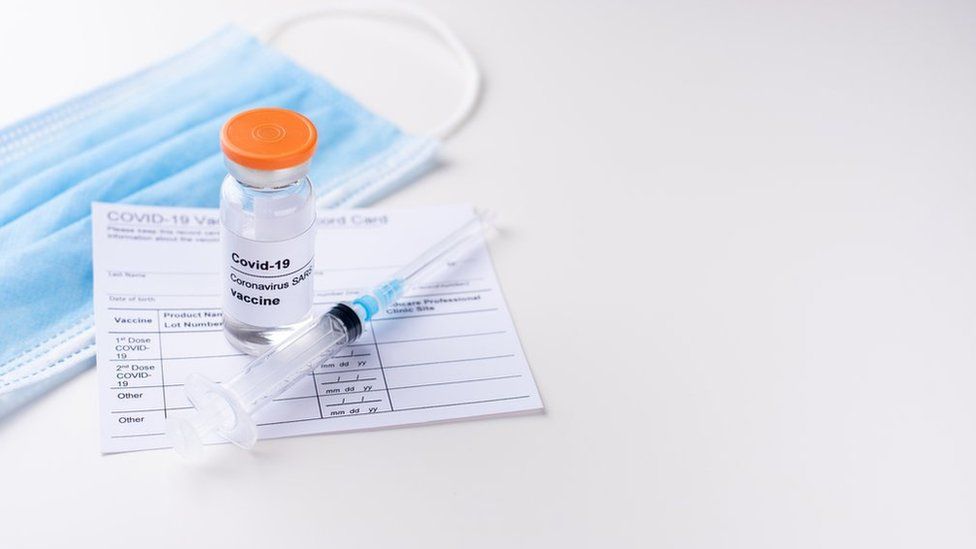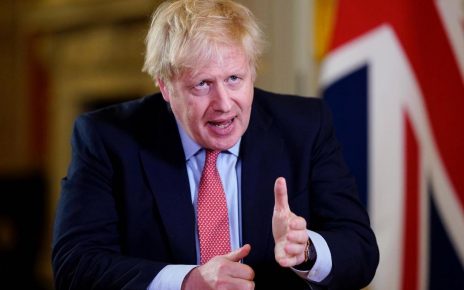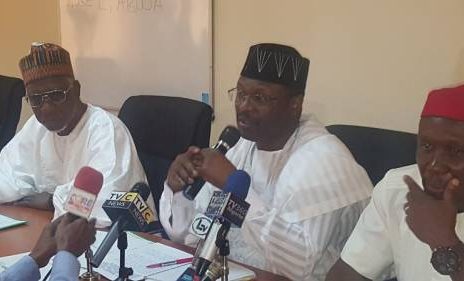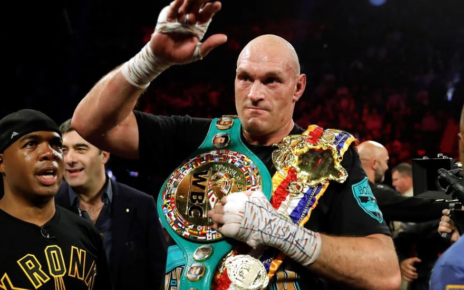Covid – A petition urging the government not to introduce vaccine passports could be debated by MPs after it gained more than 200,000 signatures.
The online petition says the passports could be “used to restrict the rights of people who have refused a Covid-19 vaccine”.
On Tuesday, Boris Johnson announced a review of vaccine certificates, or passports.
Proof of vaccination could allow people to travel or attend large events.
Vaccination is not mandatory, and the petition says passports “would be unacceptable”.
The prime minister has appointed Cabinet Office Minister Michael Gove to look at the issues involved in any scheme, which could see the existing NHS app updated to include proof of vaccination.
Previously, the government had said it was not planning to introduce such a scheme for domestic use.
On Friday, Heath Secretary Matt Hancock said the government wanted to enable people to prove their vaccination status if other countries demand it for travel abroad.
But he told reporters at a Downing Street press conference questions about how they might be used domestically would be examined during the review.
“I think it’s best to allow that review to take evidence, to consider all of the broad range of issues, and then come to its conclusion,” he said.
“It’s right we take our time to think about this.”
On Tuesday, Mr Johnson said there are “deep and complex issues” with using vaccine passports or certificates to prove someone’s Covid-19 “status”.
He said using certificates to allow visits to venues such as pubs and theatres was a “novelty for our country”.
‘Two-tier society’
The petition posted on the Parliament website says: “We want the government to commit to not rolling out any e-vaccination status/ immunity passport to the British public.
“The government must be completely clear to the public about the use of vaccine passports and their intensions, which will undoubtedly affect societal cohesion.”
The human rights pressure group Liberty has also expressed concern about the idea.
Its head of policy and campaigns, Sam Grant, said vaccine passports could “create a two-tier society where some people can access support and freedoms, while others are shut out – with the most marginalised among us hardest hit”.
He added: “The road out of lockdown can’t ride roughshod over our rights.
“That’s why we need the Coronavirus Act to be repealed, and replaced with strategies that provide support to help people to follow health guidance.
“That means rejecting proposals like immunity passports which are based on exclusion and division. Instead, we must work to bridge divides with strategies that protect everyone.”
Former prime minister Tony Blair – who has made a string of coronavirus proposals through his think tank – said the usefulness of vaccine passports would depend on circumstances.
Read Also – Implications Of Online Payment Restriction In Nigeria – Sandra Brisi
In travel, he said, they would become inevitable as other countries introduce them and so the government should put in a system now to be ready for this.
Speaking via video link at an Institute for Government event, he said he did not think it would be “unreasonable” for care homes and healthcare organisations to demand staff are vaccinated, but did not envisage vaccination becoming compulsory in other areas.
He added that “personal liberty also means you’re able to have the ability to travel”.
Any parliamentary petition signed by over 100,000 people must be considered for a debate in Westminster Hall, the Commons’ second chamber.
Westminster Hall debates had been suspended due to restrictions on Parliament’s capacity to adhere to social distancing rules, but on Thursday MPs voted to restart them.
Chair of the Petitions Committee, Catherine McKinnell said 41 petitions currently waiting for debates had been started since the suspension.
She added: “I welcome the House’s agreement to resume Westminster Hall debates, and for them to be hybrid, helping to keep Parliament Covid-secure and ensure that as many Members as possible can take part in our debates.”
Source – https://www.bbc.co.uk/




